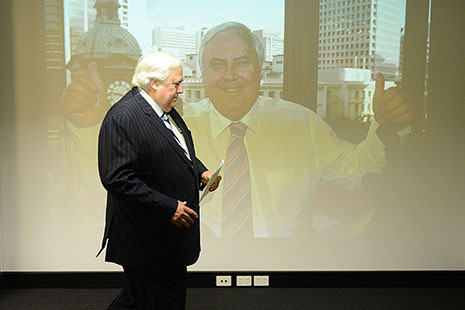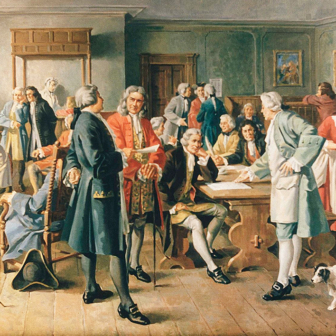RECENT interview meltdowns by election candidates must make some voters wonder how people like this can secure preselection – or even consider putting themselves forward for public office – and whether this kind of ineptitude is a recent or longstanding phenomenon. A case certainly exists for parliamentarians to be representative of the community at large, but whether that extends to members who can only remember one point out of six, or who think Islam is a country, must be doubtful.
This is an age-old problem, more easily exposed by modern media. The situation differs between major and minor parties, while independents, by definition, are not obliged to submit to any preselection process.
Obviously, minor parties can struggle to field candidates in as many seats as the majors and, with victory virtually impossible, fierce preselection battles are unlikely. Who would want to be the Greens candidate in outback Queensland? But at least the Greens have been around long enough to be able to produce a group of candidates who are usually scandal-free (leaving to one side a state member for Fremantle whose soap opera unfolded after election), who embrace a mostly coherent (albeit contestable) ideology and who can string a few words together without major embarrassment. Drawing support from the better-educated strata of society does have the odd benefit.
For the newly created minor parties, life is very different: just ask Bob Katter or Clive Palmer. These parties are essentially “grievance” groups, attracting support among voters alienated from the existing party system. Given the record of Labor and the Coalition, this is a valid political position, and it is not suggested that everyone supporting Katter or Palmer is psychologically frail. But it is invariably the case that such groups will attract some citizens with curious worldviews whose grasp on reality may be marginal. The new parties can only hope that these characters haven’t slipped through the net and become candidates.
But therein lies a problem: often, there is no net. With time being of the essence, parties like Palmer’s, Katter’s and the revamped One Nation lack the luxury of anything resembling due diligence in preselection. If a nutter emerges, these parties can only hope that it occurs before nominations close, allowing for withdrawal and replacement. And how does a candidate follow the party line when much of the detail is being made up on the run?
In some seats, the preferred solution is the selection of a “name” candidate, often a sporting identity. This path can be fraught with danger, as sport has an uneven record as a training ground for political activity. For a new party, though, the benefit of name recognition is probably worth the risk.
BY CONTRAST, the major parties have been around for so long that it is reasonable to ask how they can occasionally get it so wrong and preselect people who can’t be let anywhere near a camera or a microphone. Often, in unwinnable seats held by the other side, it is more a case of conscription than preselection, with some long-serving party member “volunteering” to go over the top for the team, helping ensure the regular core vote in the electorate and not jeopardising support for the Senate ticket. While this process may attract the ambitious (building up brownie points to secure support in a winnable seat later), this is the exception rather than the norm. Most of these party foot-soldiers do a solid job without attracting the interest of anyone except the local media. The disendorsement of the Labor candidate for Kennedy (for describing Tony Abbott as a racist) is very much an exception, although modern social media do open up the possibility of scrutiny of the views of a wider range of candidates than in the past – a development worth watching.
In winnable seats, it is clear that the major parties undertake nothing resembling the due diligence imposed on other sections of the community in making vital decisions. This was demonstrated by the preselections in Fisher (Coalition) and Dobell (Labor) for the 2010 election. In each case, the known “form” of the sitting member was ignored by those choosing the candidates. The sins of which Slipper and Thomson were accused were somewhat worse than making asses of themselves in an interview, and both ended up as independents in the forty-third parliament, effectively disenfranchising their constituents. Apologies from those responsible for the preselections have not been forthcoming.
If the major parties are prepared to overlook dubious behaviour in selecting candidates, then choosing inarticulate bunglers seems almost a minor offence. The common theme, however, is that party processes and practices are not directed at selecting the “best” candidate who meets a commonly agreed set of criteria. Such a (non-exhaustive) list might include an interest in public policy, some history of positive community involvement, public speaking skills and media ability, and an intolerance of corruption.
Labor’s reliance on the factional system (and associated branch-stacking) in preselections is well known. The system has produced a mixed bag of candidates over the years, and no one could pretend that the best man or woman always wins. Kevin Rudd’s recent intervention in the safe seat of Hotham, purging the Labor candidate for a public loss of temper over a decade ago (when he was in his early twenties), may represent the birth of new standards, although if applied retrospectively they could cut a swathe through parliamentary ranks – starting with Rudd himself.
On occasions, a party will win an “unwinnable” seat, resulting in the election of an accidental member who was never endorsed with victory in mind and who might not have survived had preselection been contested. The 2007 federal election saw such a case in Queensland; that (one-term) Labor member’s most memorable contribution in office was to link the global financial crisis to the wrath of the Almighty.
The Liberal Party’s preselection activities don’t attract the media attention that Labor’s do, but when controversial contests emerge it is usually clear that merit was not the decisive factor. In the case of Jaymes Diaz, the candidate in very marginal Greenway, who could remember only one of the six points in his party’s border security policy, media reports tell a story of ethnically based branch-stacking. Diaz wanted the job, and he had the numbers to get it. In other instances, ideology is a primary motivation, usually to the detriment of more moderate, sometimes more talented, Liberals. For the Senate, where candidates attract minimal attention and where a position high on the ticket ensures electoral invulnerability, a trend to the fringes has been evident, with one Liberal senator linking homosexuality to bestiality.
And, speaking of the Senate, if voters think some of the people they’ve seen recently on their screens may not represent the best and the brightest, it would be best not to think too much about some upper house candidates. For decades now, running for the Senate has been a cheap version of therapy for some of the unhinged and disconnected in society, and stories of ballot papers the size of tea towels suggest that the trend is as strong as ever. Whether as independents or as part of single-interest pseudo-parties, some of these candidates could keep journalists in train-wreck copy for weeks. •




